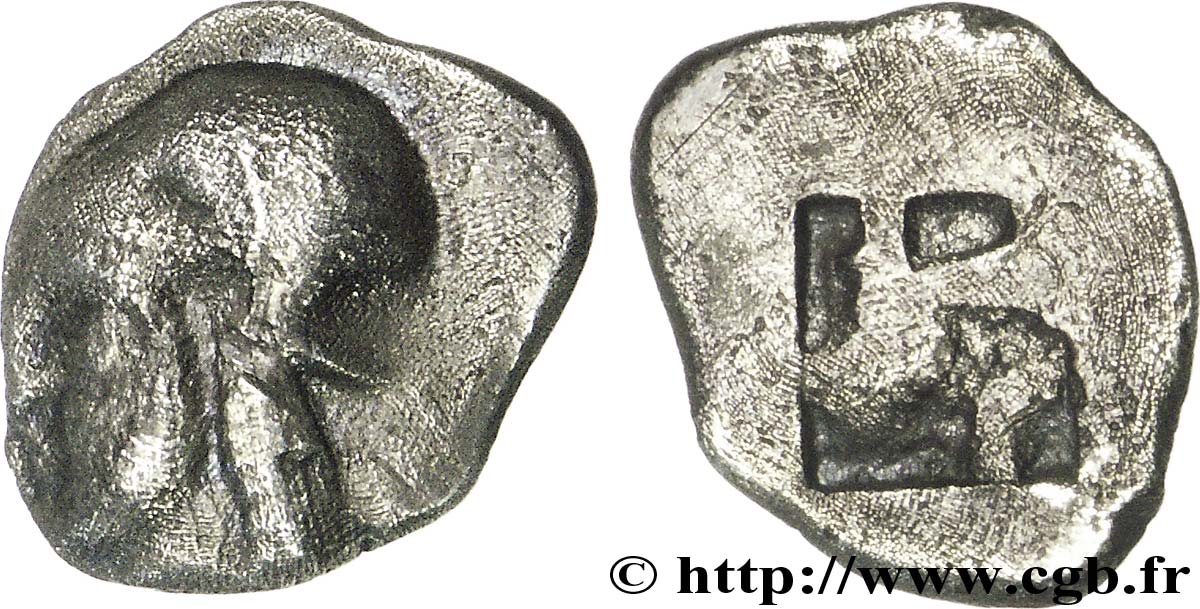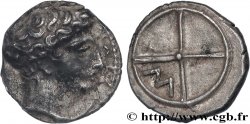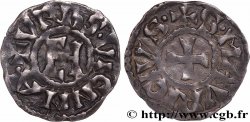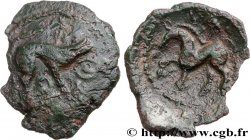v32_0796 - MASSALIA - MARSEILLES Litra du type du trésor d'Auriol à la tête d'Athéna coiffée du casque corinthien
MONNAIES 32 (2007)
Начальная цена : 250.00 €
Назначить цену : 450.00 €
непроданный лот
Начальная цена : 250.00 €
Назначить цену : 450.00 €
непроданный лот
Тип Litra du type du trésor d'Auriol à la tête d'Athéna coiffée du casque corinthien
Дата: c. 480-470 AC.
Монетный двор / Город: Marseille (13)
Металл: silver
Диаметр: 9,1 mm
Ориентация осей монеты: 12 h.
Вес: 0,81 g.
Редкость: R3
Комментарии о состоянии
Monnaie frappée sur un flan très irrégulier, d'une frappe décentrée au droit mais au revers complet. Patine grise et granuleuse
Ссылки в каталоге: :
Лицевая сторона
Аверс: легенда: ANÉPIGRAPHE.
Аверс: описание: Tête d'Athéna à gauche, coiffée du casque corinthien.
Обратная сторона
Реверс: легенда: ANÉPIGRAPHE.
Реверс: Описание: Carré creux irrégulier.
Комментарий
Ce type de monnaie avec l'Athéna portant le casque corinthien est très rare. Les quelques monnaies publiées ont ce même point commun mais ont aussi des divergences dans le style de coiffure par exemple. L'exemplaire de Furtwängler pèse 0,78 gramme, celui du trésor de la RN 1983, 0,83 gramme et celui proposé ici 0,81 gramme.








 Cообщить об ошибке
Cообщить об ошибке Распечатать страницу
Распечатать страницу Отправить мой выбор
Отправить мой выбор Задать вопрос
Задать вопрос Consign / sell
Consign / sell
 Информация
Информация












